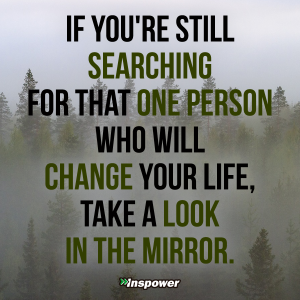Tag Archives: change
Stepping outside your Comfort Zone
As therapists we talk about this imaginary comfort zone a lot. We may use different phrases and words, perhaps we talk about resistance to change or pushing boundaries or maybe we just suggest doing things differently. Whatever the language we are talking about change and doing something in a way we haven’t done before to achieve a different result. This means for many of us that we have to step outside that invisible comfort zone.
The funny thing is that when we talk about this people describe feeling anxious about the mere idea. In an article titled How Stepping Outside Your Comfort Zone Can Help Reduce Anxiety the author challenges this idea with their own personal experiences with change. While challenging herself didn’t completely eliminate her anxiety she found that anxiety was not who she was. It opened the door to what was possible.
The “comfort zone” defined by Lifehacker as a “behavioral space where your activities and behaviors first a routine and pattern that minimizes stress and risk.” Of course this sounds great but it doesn’t leave much room for change, growth and new experiences. Huffington Post gives us 6 Reasons to Step Outside Your Comfort Zone and they are pretty compelling. They suggest that trying new things can make you more creative, help you perform at your peak and even help you age better!
So where can you start? In Lori Thayer’s article Step Out Of The Comfort Zone from Life Hack she gives ideas for small, medium and huge steps. While I wouldn’t recommend some of the huge steps they did make me smile. I mean go camping with bears?! Maybe start small like signing up for a computer class, saying hello to a new person every day or not reading your email every time you hear that incoming mail sound.
In How to Step Out of Your Comfort Zone: 3 Helpful Habits, writer Henrik Edberg suggests mixing it up a bit. He recommends eating something new or changing your daily route. If you aren’t quite ready to go it alone you could bring a friend along to the gym or that party you want to go to. Regardless of what the change is you are opening yourself to new experiences and it can be exciting and a bit scary but you will notice a difference!
What would you do for yourself?
We are never too young or too old to do something good for ourselves. Sometimes it is difficult to put ourselves first or self nuture. I asked a few friends what they might thank themselves for in the future and the answers were all so different. One said they would thank themselves for starting their own business and creating freedom for themselves. Another said they would thank themselves for setting boundaries with family members that they found brought negativity and self doubt into their daily life. One friend said the best thing they did was take a vacation with no wifi and without looking back.
In an article from Power of Positivity titled 10 Things You Can Do Now That You’ll Thank Yourself For Later, they mention living in the present as one of the ten. While there is nothing wrong with with planning and setting future goals sometimes we can miss out on what is happening here and now.
Do you ever find yourself sitting at a family event while making a mental to do list in your head? Or maybe watching your child play hockey while sending a grocery list to yourself on your phone? By not being truly present we might miss that first hockey goal or family story that makes everyone laugh for years to come.
Be who you really are each day challenges an article by Lifehack, 30 Vital Things your future self will thank you for. It suggests first you can start with deciding who you really are and then take the next step to be that person daily. Being authentic and true to yourself is a gift you can give to your future self.
So be present, be honest, be you and then do something that your future self will thank you for!
Post Traumatic Growth

Sometimes in counselling we find ourselves suggesting to a client that a recent traumatic experience can be looked at as a gift. Often the individual looks bewildered and wonders how we could even suggest that?! Fast forward a session or two later when self reflection and a little probing has helped them find other times in their life where a difficult experience brought a lesson or an opportunity for growth.
Life challenges us so often in ways we never expect. Perhaps we can think of a time in our life where there was a job loss that led us to a new and exciting employment experience or a relationship that we held onto long after its shelf life and its ending that gave us a chance to reconnect with ourself. Trauma comes in many forms from situations such as these to grief, abuse, bullying or medical illness.
In the article from Leveraging Adversity titled “Post Traumatic Growth” -Three Words Every depressed Person Should Hear. Author Claire Dorotik-Nana describes the 5 domains of post-traumatic growth. These are:
- A greater appreciation for life
- An openness to new possibilities
- A greater sense of personal strength
- A deepening of relationships
- A deepening of spirituality.
Professor Stephen Joseph author of What Doesn’t Kill Us; A guide to overcoming adversity and moving forward, looks at the ways people can handle adversity. One thing to always remember is the story isn’t over, we get to create and continue writing our story in a way that can help us find new purpose and direction.
In closing there is a fantastic, unique and very positive Ted Talk by Jane McGonigal entitled The Game that Can Give You 10 Extra Years of Life that is definitely worth a watch.




